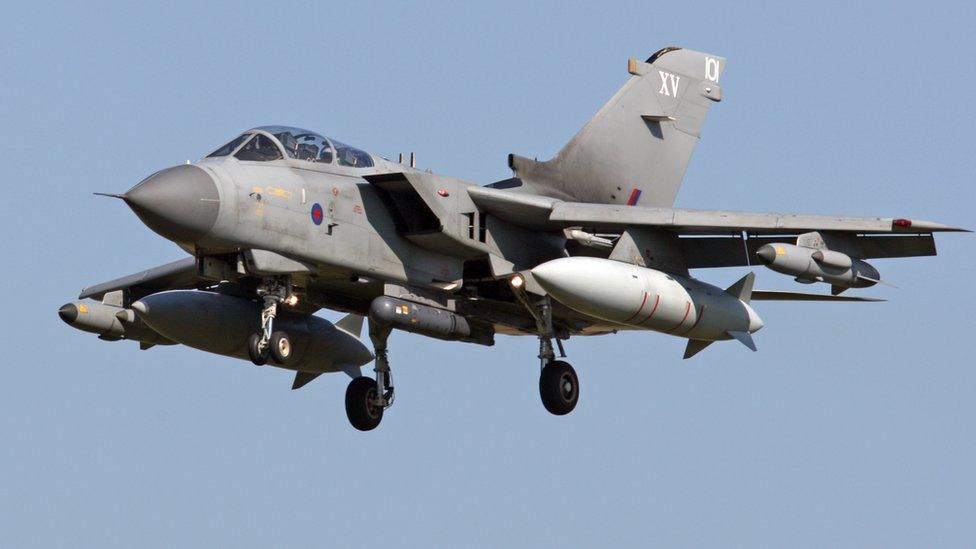Syria air strikes: Media scepticism as UK joins campaign
- Published
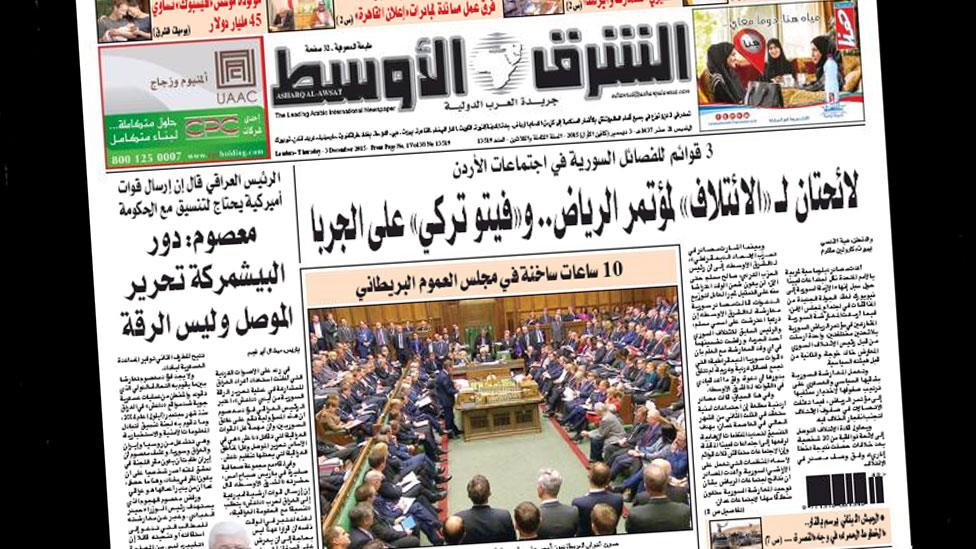
Saudi newspaper Asharq Al-Awsat features an image of the UK debate on their latest front page with the heading, ‘Ten hot hours in the British House of Commons’
Syrian state media has reacted with scorn after MPs in the UK voted to attack so-called Islamic State targets in Syria.
Al-Thawra, external newspaper said the House of Commons had responded to "Prime Minister David Cameron's lies" by "vaulting over international legitimacy as usual".
It asked why the US-led alliance "does not target Islamic State leaders' bases, or the smugglers' oil pipelines to Turkey?"
Meanwhile Al-Baath, external saw Mr Cameron running a "PR campaign" to help a "US-led show in violation of the UN Charter".
But Al-Watan took another line, highlighting Mr Cameron's remark on the "narrowing gap" between the West and Syria's Russian allies over the future of President Bashar al-Assad.
The opposition weekly Inab Biladi, external, which has its headquarters in Turkey, focused more on anti-bombing protests in London, saying: "Thousands of Britons chant 'Shame on you Cameron, no to bombing Syria!'"
Syrian state TV highlighted Mr Cameron's remark that getting rid of IS would help 70% of Syrian refugees return to their country, saying it was the first time Britain had admitted that terrorism was the reason behind the displacement of Syrians.
Protests highlighted
Iranian broadcast media devoted extensive sceptical coverage to the air strikes, with state TV saying Britain had opted to intervene in Syria "under the pretext of fighting terrorism".
English-language Press TV's reports highlighted remarks by anti-war protesters in London, with one saying that "the bombs will further deepen the Syrian people's pain".
The channel aired footage of protesters carrying placards that read: "No bombing in Syria" and "Bombing does not kill an ideology. It feeds it."
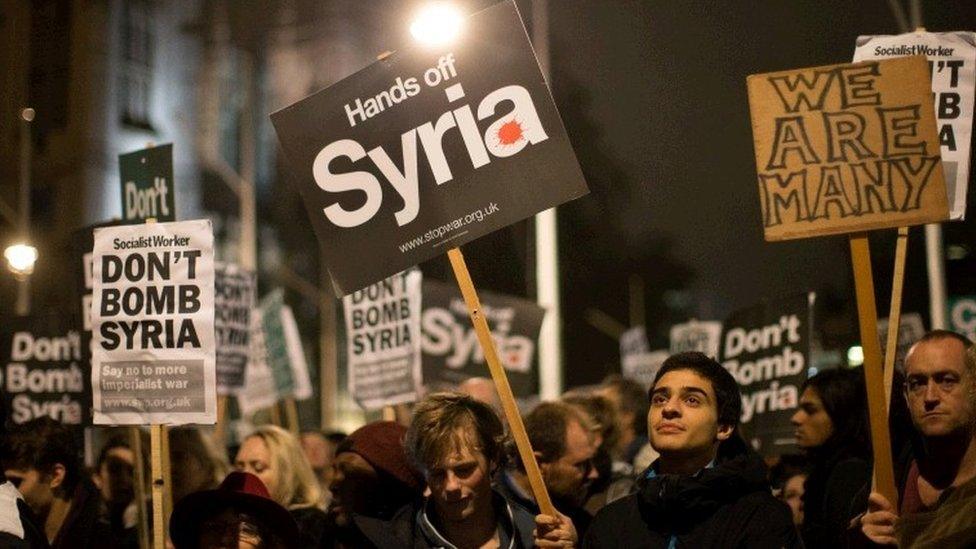
Anti-war protesters gathered outside Parliament in London in the run up to the vote
The Arabic press showed little enthusiasm about the development, with papers reporting the news rather than commenting on it.
Rafiq Khouri of Lebanon's private Al-Anwar, external daily said he did not expect much from the British bombing of IS.
"The critical factor in an aerial war, which those who launch it admit, is that it cannot eliminate IS without ground troops... And the same applies to the Russian air strikes except that they achieved in one month more than what Washington did in over a year," he wrote.
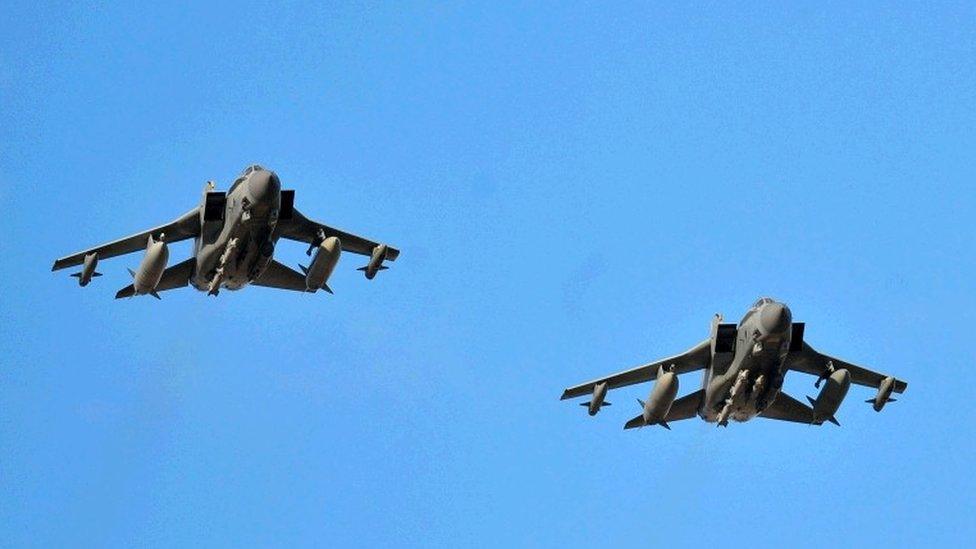
RAF Tornado jets have carried out their first air strikes against the Islamic State group in Syria
Ghazi Dahmani, writing in Saudi London-based paper Al-Hayat, said Britain was reacting to Islamic State's "new operational pattern of taking war abroad".
Saudi newspaper Asharq Al-Awsat featured an image of the UK debate on its front page with the heading, '"Ten hot hours in the British House of Commons".
Meanwhile Qatari Al-Watan daily dedicated its front-page headline to David Cameron telling Parliament that "IS is planning to kill and we will not be silent".
Qatar's pan-Arab channel Al-Jazeera TV and Saudi-owned Al-Arabiya led their morning bulletins with factual video reports on the UK debate and news of the subsequent air strikes.
There has been as yet no reaction by Islamic State to the British parliament's vote, and little comment by IS's online supporters to give a good steer on how the group might respond.
BBC Monitoring, external reports and analyses news from TV, radio, web and print media around the world. You can follow BBC Monitoring on Twitter , externaland Facebook, external.
- Published3 December 2015
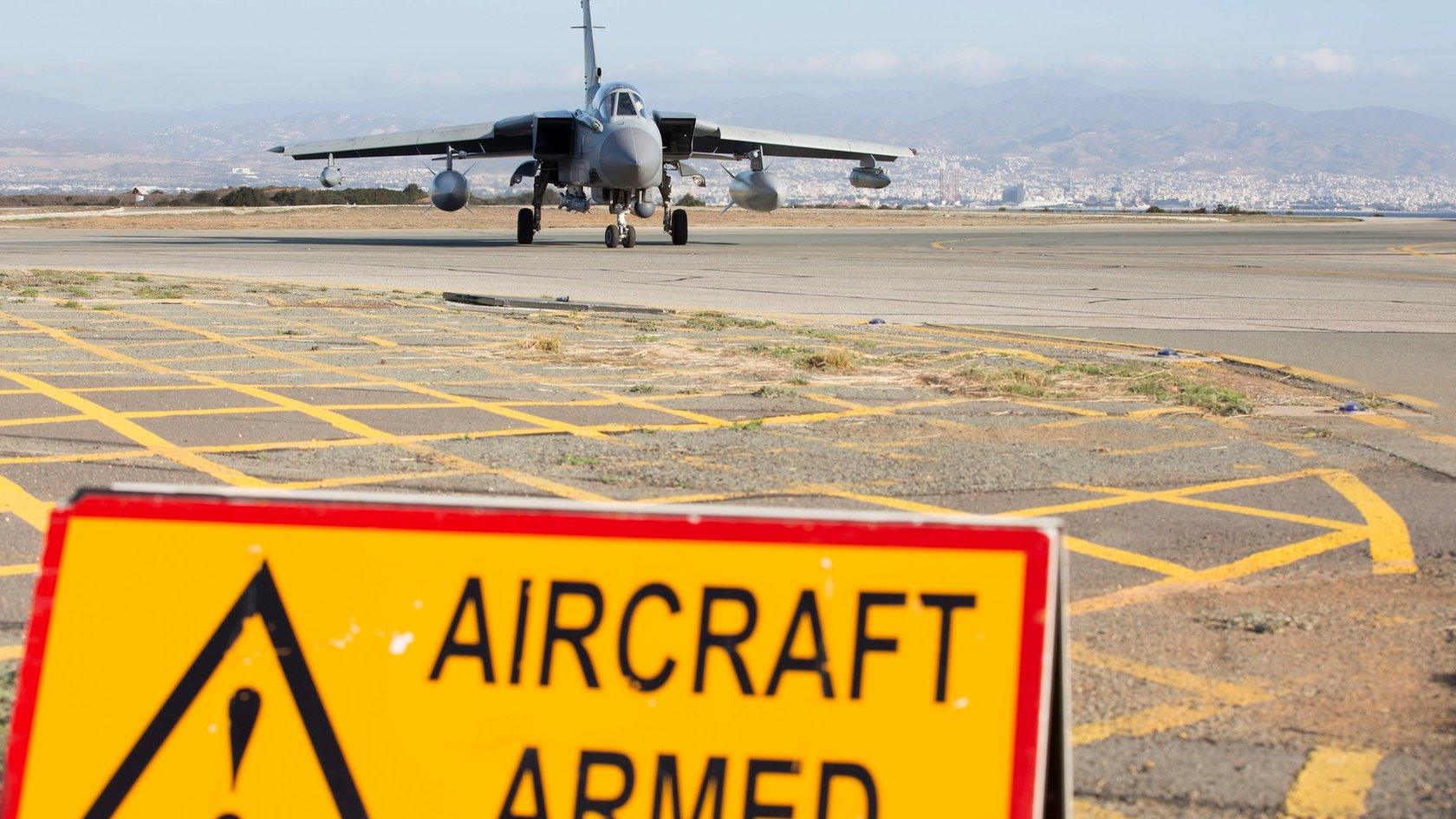
- Published3 December 2015
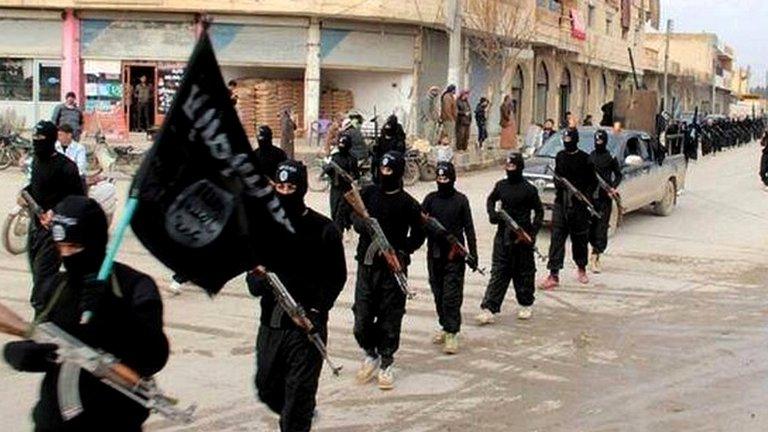
- Published3 December 2015
